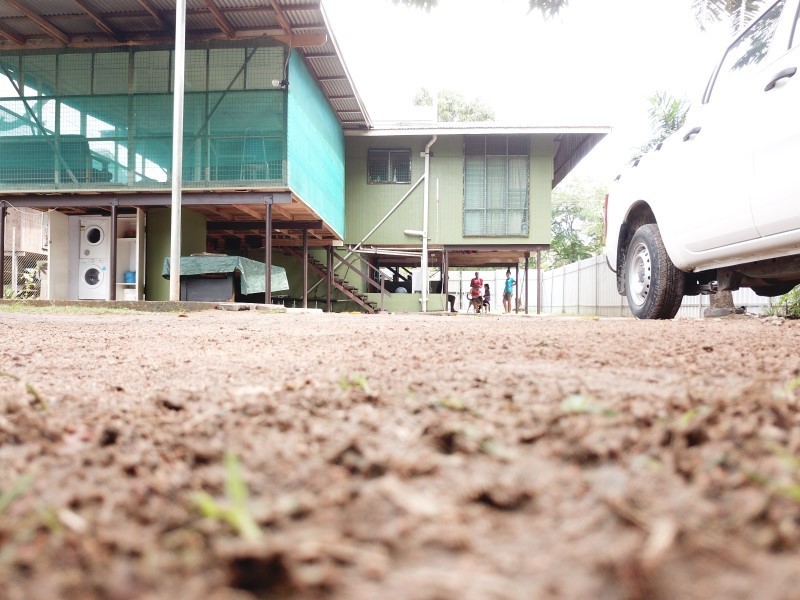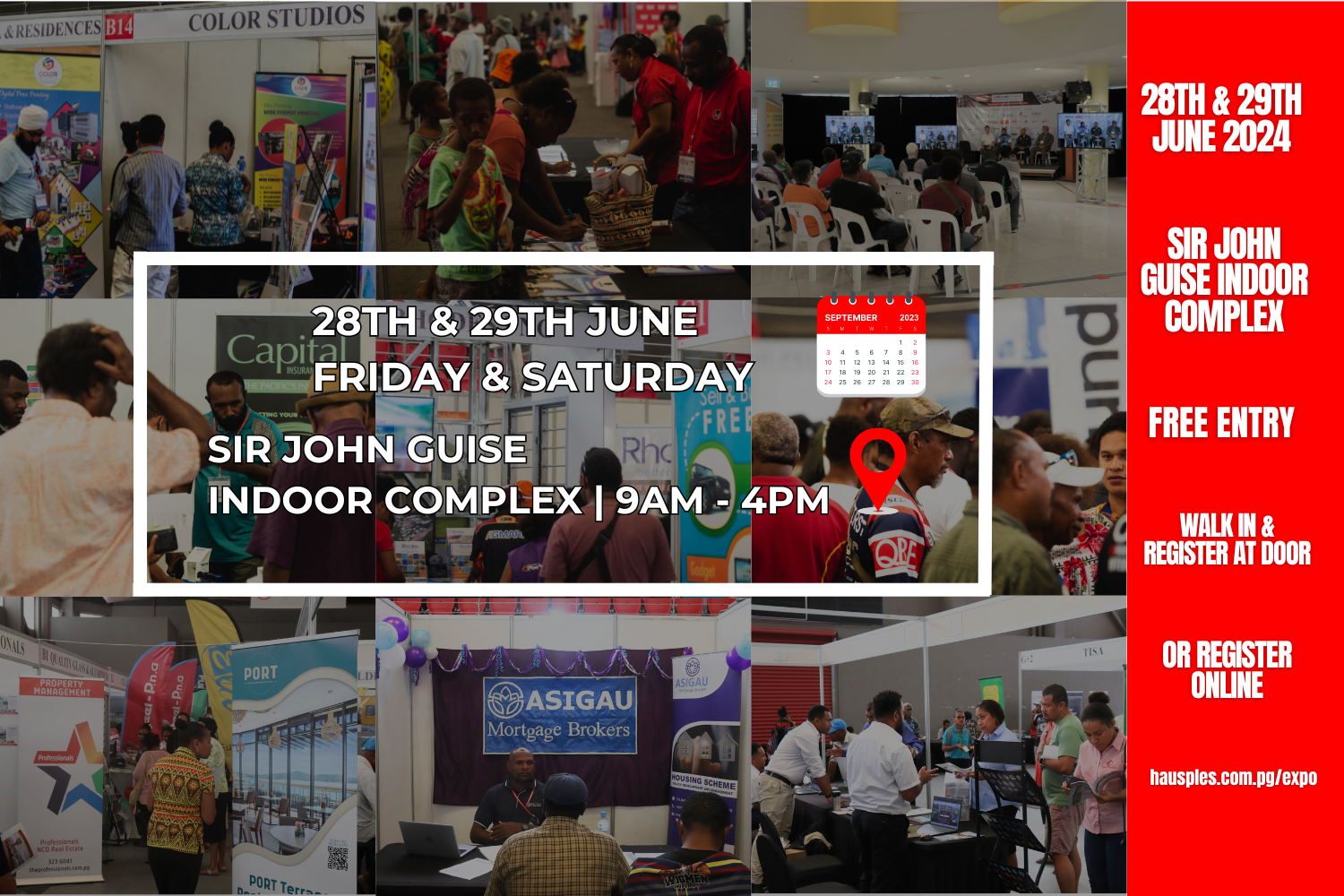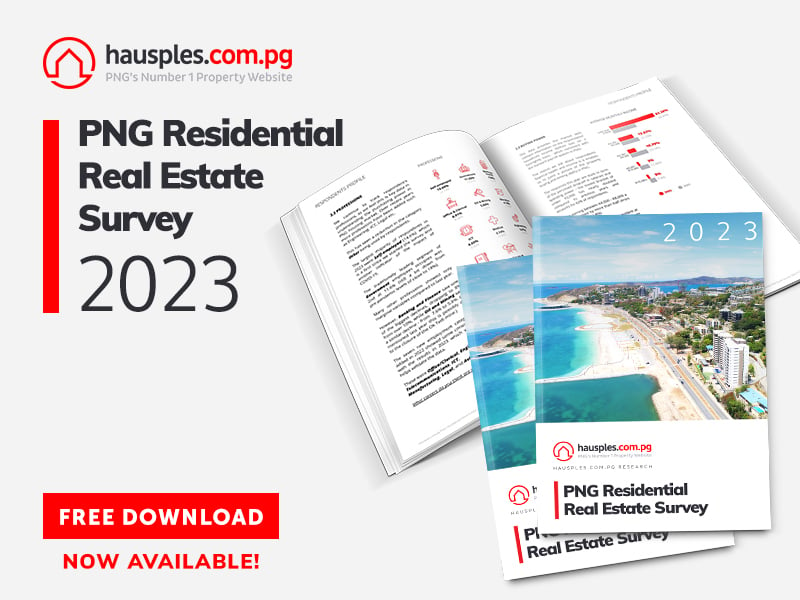The Papua New Guinea real estate industry is currently experiencing exponential growth, there are developments being completed every month throughout the country. The 2015 Pacific Games, along with the building stage of the Liquified Natural Gas Project and this years hosting the Asia Pacific Economic Cooperation meetings have helped to drive this growth. It doesn’t matter if you’re in the Highlands or the Niugini Islands, the Momase or the Southern region - everywhere you go, there are new building complexes, new residential developments, new hotels, airports and roads are being constructed in every region.
This is an opportune time to invest in real estate. Whether you are in the process of selling, or renting out your property, it is vital to have an understanding of the value of your property in order to get it priced correctly for the market. A property that is overpriced will take a long time to sell and in the real estate world the first month is the most vital for getting your property sold, there are scenarios where a property is priced too high in the beginning and the owner ends up selling for less than the true value of the property. This why it is vital to get your property valued accurately and by the correct people. Below is brief description of what and who is involved in the valuation process.
What is property valuation?
Property valuation is basically a rough calculation of how much a property will sell for (this is called capital value) or can be rented out for (this is called market value) at a given time. This value also may include land and/or buildings in that given location.
A number of factors influence this calculation like: location of the property, materials used, how old the property is (the wear and tear), the size and layout of the rooms and any added features of the property can add or subtract from the value of a property. At the time of valuation it is also important to remember that trivial things like how tidy your property is can also affect the value. If you are thinking of having your property valued it is advisable to tidy it up and make everything from the yard, the rooms, everything should look the best it can.
What is involved in property valuation?
The Valuations Act
In Papua New Guinea the Valuations Act (Chapter 327) governs all the processes and persons involved in valuations.
The Office of the Valuer General
Along Waigani Drive, in Eda Tano Haus, is the Department of Lands and Physical Planning and which has a division called the Office of the Valuer General. This division oversees all valuations, registration of valuers, payments to register valuations, land taxes and conflicts to do with valuations.

Source: ETS Architects
The Valuation Roll
The valuation roll is a legal document that consists of property information of all rateable properties within the boundaries of a local level government in PNG. This roll is meant to be updated every 5 years in order for city authorities to be able to update land taxes, to plan future tariffs and provide access to sanitation and safe water.
Registered Valuers
In order to get your property valued accurately and have that value recognized by all institutions you must make certain you get your property valued by a certified valuer.
Many real estate agencies on Hausples.com are able to provide a registered valuer, you can click Here to see a full list. Financial institutions also conduct valuations and there are professional valuation agents in the country.
What is the process involved for property valuation?
For example Elaine would like to sell her house which comes with the land that it is built upon, so she requests for her property to be valued. This is classified as a private valuation.
- Elaine makes a deposit of the valuation fee as discussed and agreed upon with the agent or agency that she is engaging to value her property.
- The valuer inspects her property.
- The valuer checks sales data collections, combines it with market research and provides an analysis.
- The valuer makes a compilation of a valuation certificate and a report, altogether providing a document that at most times is from 4 to 10 pages long. It is printed, bound and signed.
How long does it take to get a valuation done?
Depending on the data available, the size of the property and if all necessary paperwork is available the valuation can take from a working week up to two working weeks.
What is the cost of a valuation?
The fees will depend on who is conducting the valuation and the scale of the project. It also must be noted that cost of valuation is always proportionate to the value of the property. The larger and more expensive the property, the greater the cost of the valuation will be. You should make it your business to request for a proposal with a description of services to be provided and the estimate costs involved. To enlist the services of the Office of the Valuer General the costs are as below.

Why should I get my property valued?
There are four main purposes for an accurate and registered valuation:
- When you want to sell property to be able to set your price so that it is competitive with current market prices and not too high or too low.
- When you want to purchase property you will require a valuation in order for you to make an informed decision and also for your bank to make a decision on a loan if you are requesting for one to purchase.
- When you want to use your property as equity to get a large loan for other purposes.
- When you want to get your property insured, the insurance firm will want to know the value of your property from a certified valuer.
In other finance and accounting circumstances where you will need to have a complete value of everything you own it is also adivsable to get a property valuation.




Comments